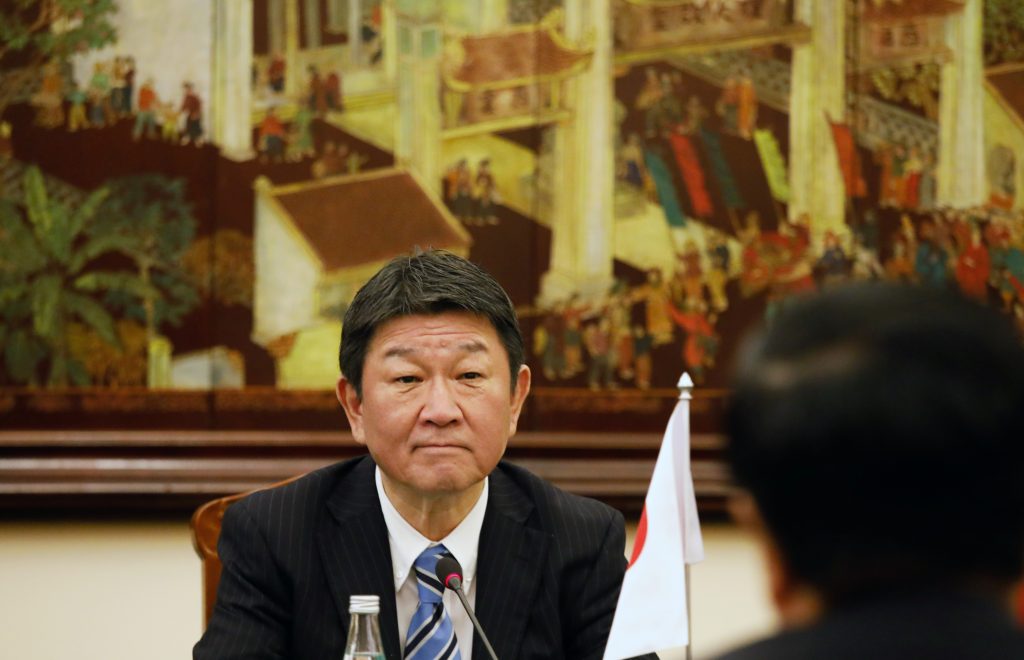
- ARAB NEWS
- 25 Apr 2024

Khaldon Azhari
TOKYO: Japanese Foreign Minister Toshimiutsu Mogi expressed caution on taking strong economic measures against Lebanon to force its government extradite Carlos Ghosn.
Motegi warned that Japan would not want to cause further destabilization in Lebanon.
Despite media reports stating Tokyo may reduce its Official Development Assistance (ODA) to Lebanon if Ghosn is not extradited, Motegi told Arab News Japan at a press conference that Tokyo is not considering reducing its ODA.
Carlos Ghosn, former Nissan CEO jumped bail last month and headed to Lebanon.
“Japan's ODA has been highly evaluated not only in the Middle East but also in other countries around the world. Our ODA has been contributing to the economic development in those counties not only in material projects but also for human resource development, humanitarian assistance and nation building,” Motegi said.
Regarding Lebanon, which is facing an economic crisis and the influx of refugees in Syria, Motegi said Japan will not take measures to further destabilize the country. “At this point, we should also be careful with regard to the situation in the Middle East as a whole,” he added.
Japan's foreign ministry data shows ODA disbursements to Lebanon in recent years included grassroots human security projects and emergency humanitarian assistance through the Japan Platform (JPF).
Japan also provided emergency grant aid for Syrian refugees and host communities in Lebanon through the United Nations High Commissioner for Refugees (UNHCR) and United Nations Development Programme (UNDP).
The Japanese assistance also included financing projects for improvement of archaeological research equipment of National Council for Scientific Research Cultural Grassroots Project. Lebanese trainees accepted to Japan, and Japanese experts were dispatched to Lebanon according to the Ministry in Tokyo.